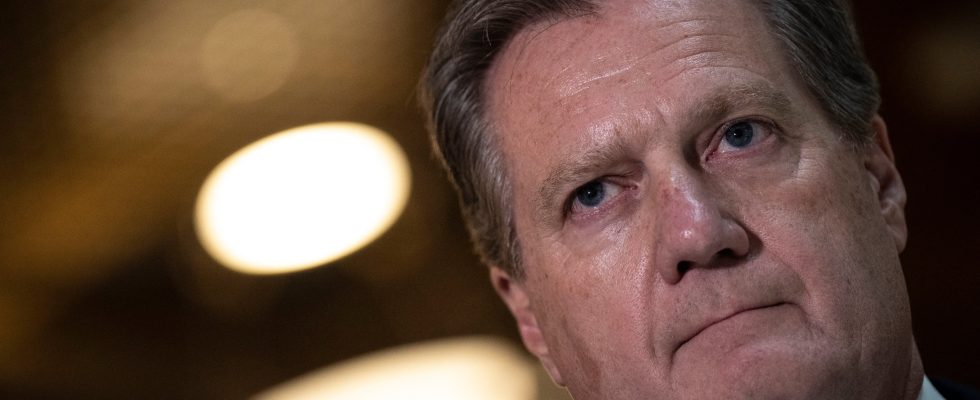The alarm given by Michael Turner, cryptic, was cause for concern. In a statement released Wednesday, the Republican chairman of the House Intelligence Committee said he had asked members of Congress to review “information relating to a serious threat to national security.” This Ohio representative, however, did not specify what threat it is.
“I am asking President (Joe) Biden to declassify all information relating to this threat so that Congress, the government and our allies can debate the actions necessary to confront it,” announced Michael Turner.
CBS News has qualified this statement of “enigmatic” when Politico preferred to use the term “vague warning”, relates International mail. American media, NBC and CNN, citing unidentified sources, spoke of “extremely worrying” Russian military capabilities. CBS News was more specific. According to anonymous sources interviewed by this television channel, Russia intends to place a nuclear weapon in space in order to potentially use it against satellites. These sources, however, specified that no proof of the use of these weapons exists. ABC Newswho interviewed two sources close to the deliberations at the Capitol, also clarified that the intelligence was linked to the Russian desire to deploy a nuclear weapon in space, to possibly use it against satellites.
“There is no need to alarm the public”
For its part, the Telegraph has indicated that communications or guidance systems for military use could be affected, for example. For his part, Politico has floated the possibility of a Zircon 3M22 hypersonic missile capable of reaching speeds of Mach 8 and designed to strike land and naval targets. The hypersonic missile entered service last year aboard a Russian frigate. The site also recalled that Moscow tested an anti-satellite missile in 2021 on one of its own satellites, breaking it into more than 1,500 pieces of debris, which can pose a serious threat to other objects in orbit.
“If Russia has indeed deployed nuclear weapons in orbit, this is a direct and deliberate violation by Moscow of the 1967 space treaty,” explained at the Telegraph Dr Malcolm Davis of the Australian Strategic Policy Institute. “This would be a serious setback for international arms control,” the researcher warned the British newspaper.
But this threat is very hypothetical at this stage. Elected officials in Congress quickly sought to calm possible concerns on Wednesday. “There is no reason to be alarmed,” said Mike Johnson, the leader of the Republicans in the House, quoted by The Hill as well as by CBS News. “I don’t want people to think that the Martians are coming and your Wednesday is ruined,” said Jim Himes, Democratic representative from Connecticut and vice-chairman of the Intelligence Committee. “People should not panic,” he also said, while recognizing that “Congress and the government must take care of it in the medium and long term.”
The White House angry?
For his part, White House national security adviser Jake Sullivan expressed irritation that Michael Turner had decided to publicly raise the subject before a briefing he is due to give this Thursday to representatives and officials of the information. “It’s his choice,” he said. “All I can tell you is that I’m going to see him, talk to him […] tomorrow (this Thursday)” added Jake Sullivan.
Michael Turner’s statement also “enraged” the White House, thinks he knows the New York Times. Officials fear the risk it represents for American intelligence sources in Russia, according to the American daily.
Russia reacted. On Thursday, she judged “unfounded” the information in the American press reporting a plan by Moscow to place nuclear weapons in space, evoking a “ruse” by Washington to pass blocked aid to Ukraine.
Indeed, this episode comes at a time when Congress is blocking a significant additional envelope for kyiv at war with Russia since the invasion of Moscow two years ago. The Democratic Senate approved new aid of $60 billion for kyiv but Mike Johnson refuses any vote on the project. In addition, the prospect of Moscow developing its capabilities in the space field is part of a context of strengthening ties between Russia and North Korea.
